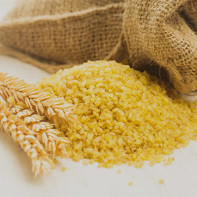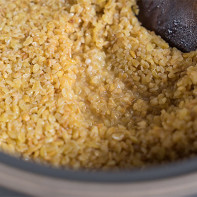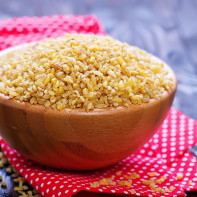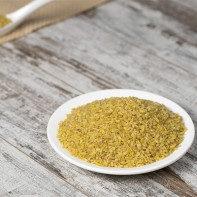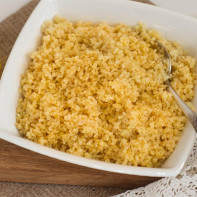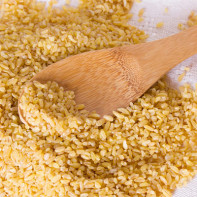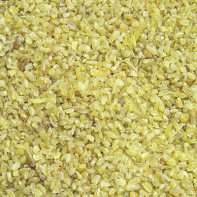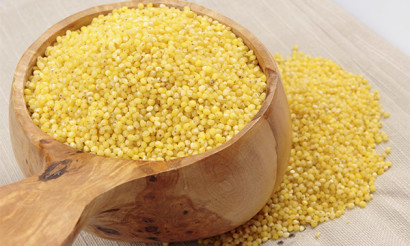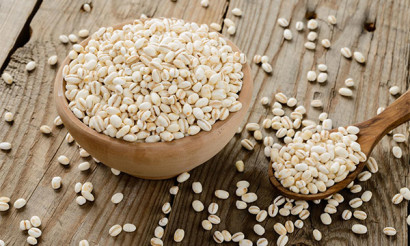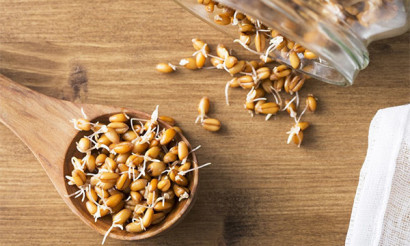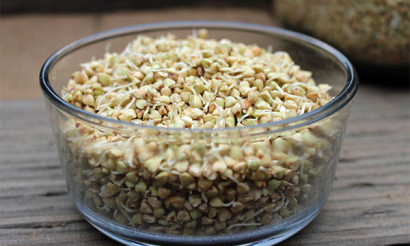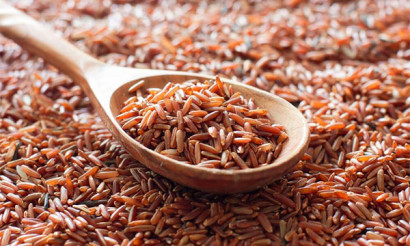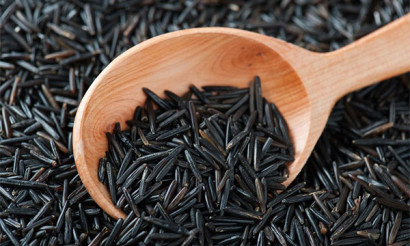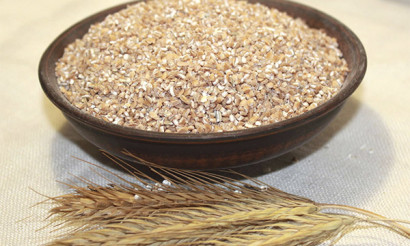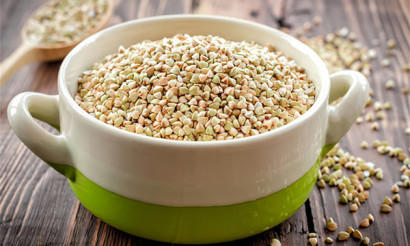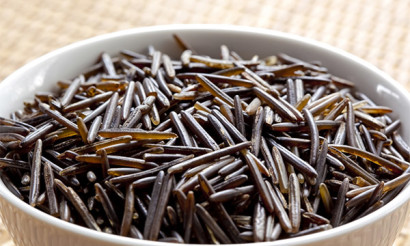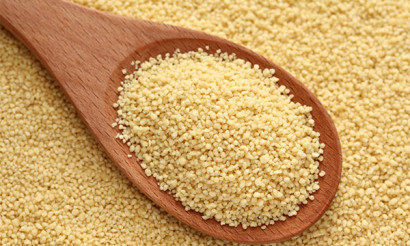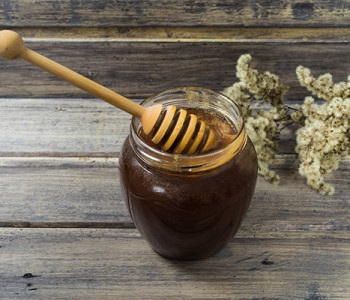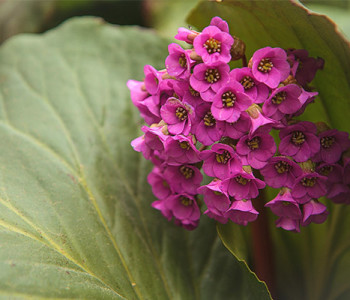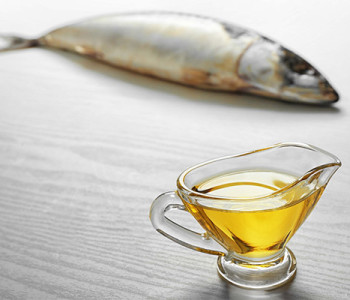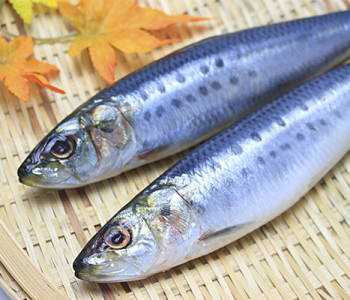Bulgur: health benefits and harms
Bulgur is a food product that has been known for about 3,500-4,000 years. It was actively used in Turkey, the Middle East and some Balkan countries. Bulgur was among the military supplies during the expeditions of the Mongol emperor Genghis Khan. The Chinese emperor Shen Nung ranked Bulgur among the sacred plants: rice, corn, barley and soy in 2800 BC. The ancient Babylonians, Hittites, and Jews used boiled and dried wheat about 4,000 years ago, while Egyptians and other civilizations in the Eastern Mediterranean ate boiled bulgur in 1000 BC.
- What is bulgur
- Views
- How bulgur differs from pearl barley
- Composition and calorie content
- What is useful bulgur
- General benefit
- For women
- For men
- Is bulgur useful in pregnancy and hepatitis B
- At what age can bulgur be given to a child
- Useful properties of bulgur groats for weight loss
- Bulgur in medicine
- With diabetes
- With pancreatitis
- With gastritis
- For the intestines
- With gout
- With cholecystitis
- For constipation
- Harm and contraindications
- How to choose and store bulgur
- Krupa bulgur in cooking
- How to cook
- What to eat with
- Do I need to wash before cooking
- Interesting facts about bulgur
What is bulgur
Bulgur is a wheat cereal that is first steamed, dried, and then stripped of the shell. Grains are tan.
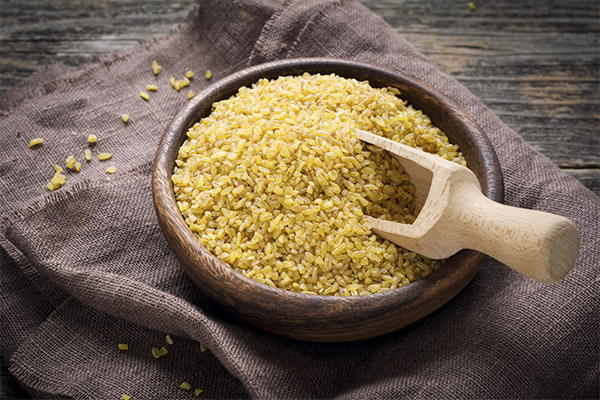
Bulgur groats are characterized by a high level of protein with a small amount of fat. It is also worth noting that this product has a low glycemic index and therefore will not cause sudden spikes in blood sugar. Half a glass of this cereal contains more fiber and fewer calories than other cereals (twice as much fiber as brown rice), which affects the regulation of digestion. Bulgur does not cause bloating. Recommended for use by people with diabetes, especially children. Due to the content of B vitamins, folic acid, this cereal is recommended to be added to the diet of women in position.
Views
As a rule, bulgur is divided into three types (according to the degree of grinding): small, medium and large. Bulgur is suitable for preparing a large number of different dishes, whether it is a salad or a dessert. Often this cereal is used as a substitute for rice or couscous.
So, bulgur is divided into several types according to the degree of grinding. But cereals can also be divided into varieties depending on other characteristics.
- Whole. It is characterized by whole grains of wheat that have not been crushed, but which have undergone processing.
- Coarse-grained. The grains are quite small. Suitable for cooking pilaf and dolma.
- Midyat. The grains are also small, suitable for pilaf.
- Small. Crushed grains. Can be used as salad dressing, also suitable for dessert.
- Dark. The chemical composition is very similar to the rest of the cereals, but the cereal is quite high in calories.
- Unpolished. Grains without shell. It has a high content of nutrients.
How bulgur differs from pearl barley
- Barley is a cereal made directly from barley. Used in the production of whole grain, which is removed from the shell.
- Bulgur, in turn, is a cereal made from boiled water, then thoroughly dried and then crushed wheat.
Despite the fact that bulgur and pearl barley are very similar to each other and many people believe that this is one and the same, still these cereals have some differences. The main ones are that barley is a cereal from grains with a removed shell, and bulgur is a cereal that has undergone processing: steamed, dried, and then crushed.
Composition and calorie content
Many experts say that bulgur is one of the healthiest cereals in the world. Rich in complex carbohydrates, protein and fiber, it is an excellent food that can be included in your diet for people with vegetarian and vegan diets.
- Carbohydrates. One serving of cooked bulgur contains 151 kcal (about 100 kcal in 100 grams of boiled cereal) and 33.8 grams of carbohydrates, about 8 grams of fiber and a very small amount of naturally occurring sugar (0.2 grams). The remaining carbohydrates in bulgur are starch. Although cereal cannot be called a low-carbohydrate product, it is important to note that the fiber it contains makes it an extremely saturated and nutritious food source.
- Fats. Bulgur contains a small amount of fat (less than one gram), provided that the cereal is cooked without any additional oils.
- Squirrels. One serving of bulgur contains about 5.6 grams of healthy protein. Protein is a building material for hair, skin and nails.
- Micronutrients. Bulgur is a good source of iron, manganese, phosphorus and selenium, also cereal is rich in B vitamins.
- Minerals Bulgur is rich in minerals (calcium, phosphorus, magnesium, sodium, potassium, chromium, iron), vitamins (B1, B2, B3, B5), fiber, folic, gallic acid and antioxidants. Gallic acid has pharmacological (antiseptic, antiflotation and astringent) properties, as well as the ability to block carcinogens. An interesting fact is that chrome contained in bulgur can help reduce cravings for sweets.
The glycemic index of this product is low - 46. Thus, you can include it in your menu almost every day. It is worth noting that, in comparison with other wheat cereals, bulgur is considered one of the most useful products, as it has the lowest glycemic index, fewer calories, and also contains a lot of fiber.
What is useful bulgur
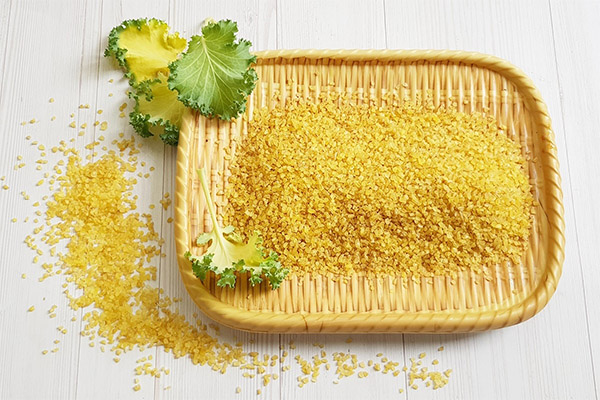
General benefit
- Helps to lose weight. 100 grams of boiled bulgur groats contains about 83 kcal. However, due to its low fat content and a large amount of soluble fiber, it is one of the useful products during weight loss. The fibers swell in the stomach, creating a feeling of satiety for a long time. Therefore, bulgur effectively helps to control weight.
- Groats are rich in iron. A person needs to get enough iron to constantly make up for his loss. In addition to being involved in the transport of oxygen to the blood, iron is also part of every cell in the body. This element is an important component of enzymes and proteins, it helps to form collagen, which supports the skin, muscles and immune system. Only 1 cup of boiled bulgur contains 1.75 milligrams of iron, which is 22 percent of the recommended daily intake for men and 10 percent for women.
- Groats are rich in carbohydrates and fiber. If you use only 1 cup of boiled bulgur, you can get 34 grams of carbohydrates. This is 26 percent of the required daily dose. In addition to energy-supplying carbohydrates, the same portion contains 8 grams of fiber. Those who are not used to consuming a lot of fiber should gradually increase the amount of fiber to avoid side effects such as gas formation, bloating and diarrhea.
- Strengthens bones. Many vitamins that are found in large quantities in bulgur, especially zinc, iron, magnesium and chromium, help protect bone health. In addition, the use of cereals contributes to the development of a strong bone structure in children. Some health experts argue that the iron content in bulgur is even greater than in spinach. Due to this, the consumption of this cereal reduces the risk of diseases caused by iron deficiency.
- Prevents Alzheimer's. People who receive enough vitamins and minerals in childhood are less likely to develop mental dysfunction in old age, which can lead to Alzheimer's disease. Therefore, the use of bulgur prevents mental retardation, including Alzheimer's disease.
- Strengthens tissues. The vitamins and minerals contained in bulgur are important for tissue health.Croup is one of the rare sources that supports tissue health and strengthens them, also protects muscle health and helps control the level of fat in them.
- The benefits of bulgur for the health of hair and skin. Many vitamins and minerals contained in bulgur are important for healthy hair and skin. Adequate iron eliminates skin problems and hair loss.
- Supports the nervous system. People who are nervous or are in constant tension and stress should constantly use bulgur. It is rich in B vitamins and magnesium - substances that are responsible for the normal functioning of the nervous system and thus help maintain mental balance. Vitamin B1 (thiamine) improves memory and thinking, and vitamin B2 (riboflavin) relieves headaches and dizziness. In turn, vitamin B6 (pyridoxine) promotes the absorption of magnesium and is necessary for the production of neurotransmitters: serotonin, dopamine, a lack of which can cause depression and anxiety. In addition, vitamin B9, or folic acid, improves the nervous system and reduces nervous tension. Magnesium facilitates the delivery of glucose to the brain. It is also necessary for the production of neurotransmitters. Carbohydrates, which are part of the Bulgur groats, also improve mood, as they increase the level of serotonin - the “hormone of happiness”.
- Prevents the appearance of stones and sand in the gallbladder. Studies have shown that consuming bulgur can help reduce the likelihood of gallstones and sand. There are two main types of stones: pigmented, which are smaller and darker, and cholesterol, which make up 90% of all stones in the gallbladder. Insoluble fiber helps food move faster through the small intestine. Fibers also reduce the secretion of bile and help the human body control the production of insulin. Insoluble dietary fiber is also effective in lowering triglyceride levels.
- Good for the heart. Bulgur croup is rich in minerals that are responsible for the proper functioning of the cardiovascular system. Potassium helps lower blood pressure, and during exercise, it increases heart contractions to better saturate the body with oxygen. A similar role is played by calcium, which is necessary for heart contraction and, therefore, plays an important role in the proper pumping of blood into all body tissues. Magnesium expands the arteries and thus can protect a person from a heart attack. In addition, it helps regulate calcium levels and improves potassium absorption. Sodium, together with potassium, regulates muscle tension and affects the stimulation of nerve cells. In addition, cereal is rich in fiber, which reduces the level of "bad" cholesterol. This reduces the risk of atherosclerosis, which leads to a heart attack, stroke, or pulmonary embolism and thrombosis. Bulgur can also help treat anemia because it is rich in iron and folic acid.
- Reduces the risk of cancer. The insoluble fibers contained in bulgur reduce the risk of developing certain types of cancer. A serving of bulgur-based cereal provides about 34% of the daily fiber requirement, which reduces the likelihood of breast cancer and other forms of cancer.
- Fights diabetes. Boiled bulgur cereal contains 18.58 g of carbohydrates (in 100 grams), of which only 0.1 g are simple sugars. No wonder she has a low glycemic index. Therefore, it does not cause rapid surges in sugar, so diabetics can consume bulgur without any fear. Bulgur wheat contributes to a slower increase in blood sugar than rye bread or whole wheat bread.
- Contains important minerals and vitamins. Bulgur wheat provides the human body with many substances, which are often insufficient for people due to malnutrition. Groats are a good source of iron, B vitamins, magnesium and manganese, which help maintain a healthy metabolism and ensure health and vitality.
For women
Substances in the croup have a beneficial effect on the quality and structure of the hair. The hair becomes silky, the growth rate of curls also increases. The regular use of bulgur helps to restore the natural tone of the face. You can also make various skin creams from this cereal. Means based on bulgur help cleanse the dermis of dirt and keratinized particles, as well as smooth wrinkles. This product helps to slow down the aging process and increases tissue elasticity.
For men
Croup can often be found in the diet of men who are intensely involved in sports or associated with regular physical exertion. Porridge helps provide a feeling of satiety for a long time. Bulgur is a highly digestible cereal that does not cause heaviness in the stomach, enriches with carbohydrates, proteins and a lot of dietary fiber.
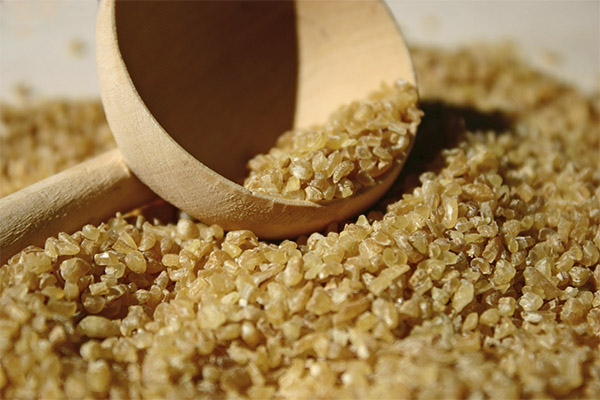
Also, this product affects the normalization of the functions of the nervous system. Croup is a tool that can deal with stressful conditions, and can also prevent depression and apathy. Bulgur is very useful for those who are engaged in mental activity: substances that are in the cereal, affect the increase in efficiency, give vigor and vigor.
Is bulgur useful in pregnancy and hepatitis B
Groats are rich in vitamin B9, that is, folic acid (18 mcg per 100 g). This is very important for pregnant women, especially in the first trimester, because this vitamin can prevent the occurrence of congenital defects of the neural tube in the fetus, hernia of the nervous system and cleft spine.
When breastfeeding
A diet high in folic acid is also needed during breastfeeding. The stock of folic acid during lactation should be 0.5 mg / day. Since bulgur is rich in folic acid, it will be very useful during the period of hepatitis B.
At what age can bulgur be given to a child
The recommended age at which bulgur can be included in a child’s diet is 4 years. At this age, you can already give children dishes that contain cereals. Whole porridge is allowed to be included in the diet from the age of 7.
Useful properties of bulgur groats for weight loss
People who are trying to lose weight are advised to regularly use bulgur cereal. A cup of boiled cereal contains about 160 calories. In addition to low calorie content, cereals are rich in fiber. Dietary fiber has many beneficial properties for the body. For example, they give a feeling of satiety and satisfaction after eating.
Bulgur also contains protein, which is an integral part of any healthy and balanced diet. When a person tries to minimize or even eliminate meat from his diet, there is a risk that he will not receive the required amount of protein. But this problem can be solved if bulgur is regularly consumed, as this cereal is a good source of vegetarian protein (one cup of boiled bulgur wheat contains about six grams of protein).
It is also worth noting that bulgur is a low-carbohydrate product, so you can replace it with pasta or rice. Extremely rich in trace elements and proteins, bulgur is also a very good appetite suppressant.
Bulgur in medicine
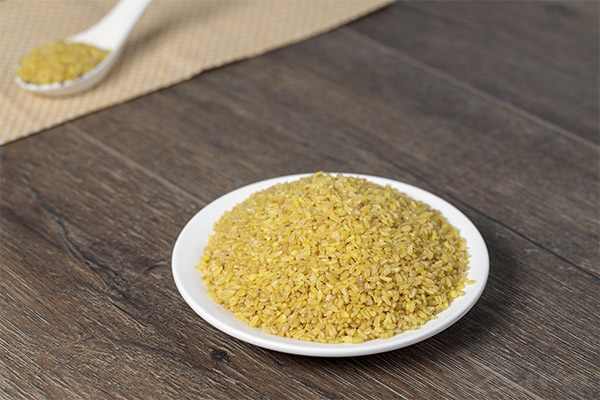
With diabetes
Bulgur croup has a very low GI (glycemic index) - 46, which means that its use does not cause sudden surges in sugar. Research has shown that bulgur causes a slower increase in blood sugar than rye or whole grain bread. Thanks to this, cereals are considered safe for diabetics, as well as people at increased risk of developing diabetes.
With pancreatitis
Experts say that the consumption of bulgur with pancreatitis is quite acceptable. This product can have a negative effect in case of gluten intolerance or allergic reactions to cereals. This means that this cereal can be included in the diet for pancreatitis, with the exception of periods of exacerbation of the disease, when a strict diet is prescribed.
With gastritis
Despite the fact that bulgur has a large number of useful properties, with gastritis it is necessary to limit its use. Bulgur should be cooked only on water, it is desirable that the porridge be sufficiently viscous. During exacerbations, cereals should be completely excluded from the diet.
For the intestines
Bulgur is a source of fiber, which improves the digestive tract. Therefore, croup supports the digestion process, improves intestinal motility and prevents constipation, and some experts say that even colon cancer.
With gout
With gout, it is allowed to eat various cereals, including bulgur. It can be used as the main product, as well as as an ingredient for various dishes.
With cholecystitis
With cholecystitis, it is recommended to use bulgur on a regular basis, but in small portions. The main thing - do not add spices and fat during the preparation of porridge. The most suitable option is to cook soups.
For constipation
The high fiber content in cereals is great news for people who have slow intestinal motility or constipation. Regular consumption of porridge will help to normalize the functioning of the intestines and, in addition, will prevent the formation of diseases and infections that often occur with chronic constipation.
Harm and contraindications
Although this cereal is extremely healthy, it can be harmful if consumed in too large quantities. With stomach ulcers, reflux, or with high acidity, frequent use of rough Bulgur porridge can aggravate the symptoms of these diseases. In addition, people suffering from celiac disease or allergic to gluten, will have to abandon bulgur cereals.
How to choose and store bulgur
The first thing to do is to see if the packaging is whole with cereal. It is recommended to choose a transparent box or soft packaging, so that you can assess the quality of cereals. It is worth paying attention to the grains: they should not stick together, it is desirable that the groats were crumbly.
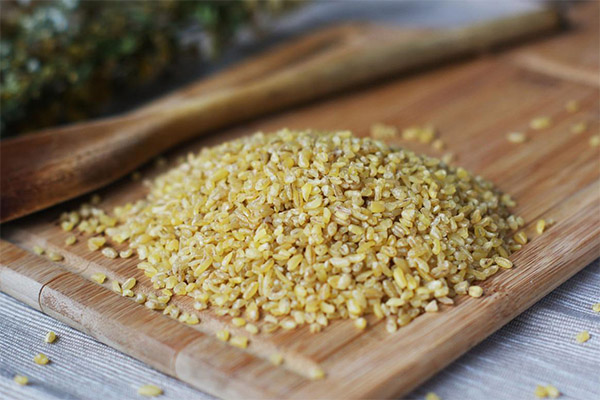
Bulgur should be stored in a tightly closed glass container.
Krupa bulgur in cooking
Bulgur is widely used in cooking. For example, in Turkish cuisine, this cereal is the main side dish that goes well with meat and fish. You can often see that traditionally rice dishes are replaced with bulgur, for example, when stuffing peppers or cooking cabbage rolls.
How to cook
In order for a dish prepared using bulgur grits to be tasty, you need to know some rules. The first thing you should pay attention to is the ratio of water to cereals. You need to cook bulgur in water in a ratio of 1 to 2. For cooking, milk is permissible. Some soak the cereal before cooking, which is optional. In this form, the cereal will cook faster, but the risk of digesting bulgur increases. Therefore, so that the cereal does not turn into porridge, you should not soak it, and, conversely, if porridge is needed, you can pour the cereal with water before cooking.
What to eat with
Bulgur is a product that combines with almost all the ingredients. Most often porridge is made from cereals. Dried apricots, raisins and dates are added to it. Krupa is perfect as an ingredient for various salads and soups. This product is also used in cooking meat. For example, cereal goes well with pork.To add flavor to the meat, bake it with grits. Serve it with meat, fish, vegetables, stuffed peppers and tomatoes.
Do I need to wash before cooking
Many mistakenly believe that bulgur cereals must be washed before cooking. But this is not necessary, because the cereal has already been washed and dried in advance.
Interesting facts about bulgur
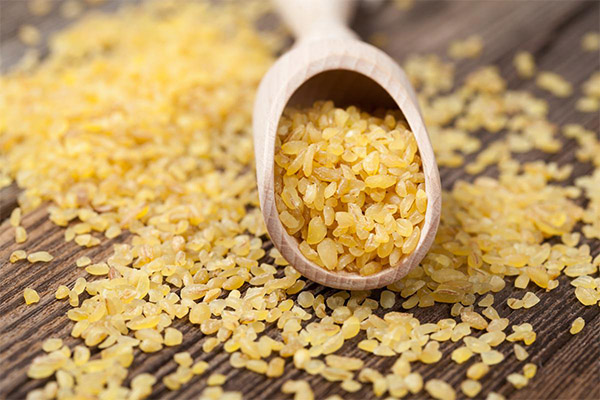
- Bulgur is considered one of the oldest boiled cereals in the world.
- During the Second World War, Bulgur was used for two purposes: as a staple food for troops and as a means of cleaning aircraft.
- Bulgur is mentioned in Jimmy Buffett’s Cheeseburger in Paradise.
- Wheat was used to simulate sand in the movie Night at the Museum: The Battle of the Smithsonian Institution.
- In the Old Testament there is mention of the croup of bulgur.
- The grains increase significantly during cooking, so during cooking you need to select the appropriate dishes for the amount of cereal.
- Bulgur does not need to be washed! Since it is washed and boiled at the production stage, the cereal does not need to be washed before cooking.
- Bulgur is resistant to mold and has a longer shelf life than other products.
«Important: all information on the site is provided exclusively in fact-finding purposes. Before applying any recommendations, consult with a profile specialist. Neither the editors nor the authors are liable for any possible harm caused materials. "

